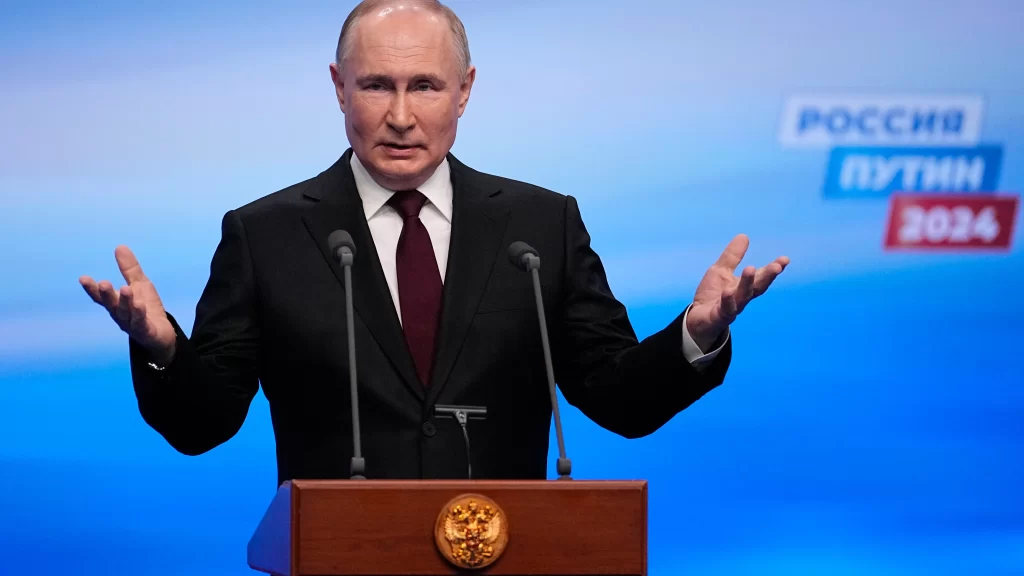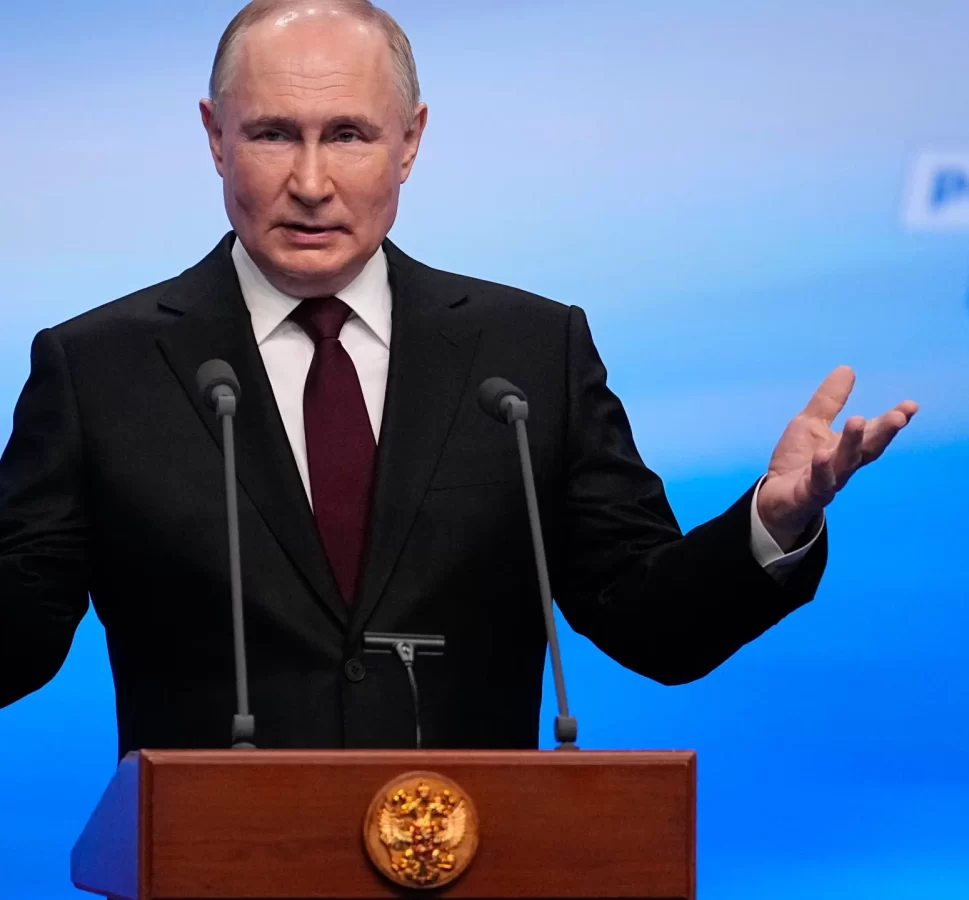
Early results show Putin winning some 87 percent of the vote, the highest-ever result in Russia’s post-Soviet history.
Russian President Vladimir Putin has cemented his grip on power in a landslide election victory that has been widely criticised as lacking democratic legitimacy.
In a post-election news conference, Putin cast the outcome as a vindication of his decision to defy the West and invade Ukraine.
“No matter who or how much they want to intimidate us, no matter who or how much they want to suppress us, our will, our consciousness – no one has ever succeeded in anything like this in history,” Putin said in an address from his campaign headquarters early on Monday morning.
“It has not worked now and will not work in the future. Never.”
Shortly after the last polls closed on Sunday, early returns pointed to the conclusion everyone expected: that Putin would extend his nearly quarter-century rule for six more years.
According to Russia’s Central Election Commission, he had some 87 percent of the vote with about 60 percent of precincts counted. The result means Putin, 71, will overtake Joseph Stalin and become Russia’s longest-serving leader in more than 200 years.
Communist candidate Nikolay Kharitonov came second with just under 4 percent, newcomer Vladislav Davankov third and ultra-nationalist Leonid Slutsky fourth, early results suggested.
Nationwide turnout was 74.22 percent when polls closed, election officials said, surpassing 2018 levels of 67.5 percent.
Putin’s victory was never in doubt as his critics are mostly in jail, in exile or dead, while public criticism of his leadership has been stifled.
The Russian leader’s most prominent rival, Alexey Navalny, died in an Arctic prison last month.
For Putin, a former KGB lieutenant colonel who first rose to power in 1999, the result is intended to underscore to the West that its leaders will have to reckon with an emboldened Russia, whether in war or in peace, for many more years to come.
The United States said the vote was neither free nor fair.
“The elections are obviously not free nor fair given how Mr. Putin has imprisoned political opponents and prevented others from running against him,” said the White House’s National Security Council spokesperson.
Advertisement
United Kingdom Foreign Secretary David Cameron said in a post on X that the vote was “not what free and fair elections look like”.
In Ukraine, President Volodymyr Zelenskyy said, “This election fraud has no legitimacy and cannot have any”.
The election came more than two years after Putin’s February 2022 full-scale invasion of Ukraine, Europe’s deadliest conflict since World War II.
On Sunday, thousands of Putin’s opponents staged a protest against him, although there was no independent tally of how many of Russia’s 114 million voters took part in the demonstrations.
Supporters of Navalny had called on Russians to come out to a “Noon against Putin” protest.
At his press conference, Putin referred to Navalny by name for the first time since his death, saying he had supported a proposal to release him in exchange for prisoners held in Western countries.
“The person who was talking to me hadn’t finished his sentence and I said ‘I agree’,” Putin said.
Putin was first nominated as acting president when former Russian President Boris Yeltsin resigned. He then won his first presidential election in March 2000 and a second term in 2004.
After two stints as president, Putin switched back to being prime minister in 2008 to circumvent a constitutional ban on holding more than two consecutive terms as head of state.
But he returned to the presidency in 2012 and won a fourth term in 2018.






